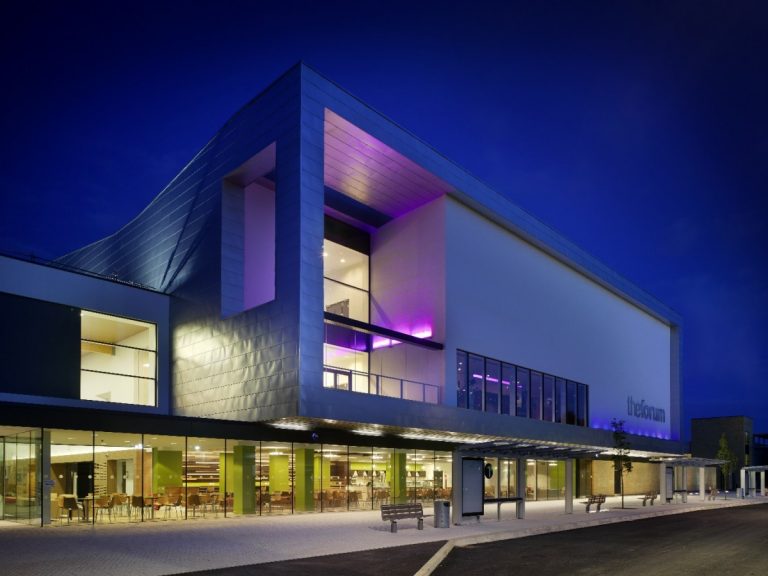
If you are ambitious and excited by cutting-edge technology, Engineering and technology could be the right career choice for you. Engineering is a flourishing industry around the world with new and emerging technologies enriching virtually every sector. There are many jobs available within the engineering and technology industry, providing a wealth of opportunities for entry level positions through to management or senior levels.
If you’re keen to pursue a career in Engineering and Technology, read on to learn about the diverse range of specialisations at the University of Hertfordshire’s School of Engineering and Technology and kick-start your thriving career…
Aerospace Engineering
As a training Aerospace Engineer at the University of Hertfordshire, you will reap the rewards of some of the most exciting prospects in today’s employment market. Engineers in this field work across both the civilian and defence sides of the global aerospace industry.
Check out the School’s exclusive interview with Manuela – a former aerospace engineering student who talks about her passion for the course and her Hertfordshire experience:
Automotive Engineering
The automotive sector is also varied and dynamic, presenting graduates with outstanding career prospects in large corporations as well as their supply chain companies. Several graduates have gone on to secure positions with F1 teams, while alumni can be found employed around the globe by a range of major vehicle manufacturers.
Find out more about how Hertfordshire uses its sportscar simulator to aid automotive students with crucial coursework projects:
Biomedical Engineering
Biomedical Engineering is an exciting new discipline that combines the University’s rich heritage in mechanical and electronic engineering with the cutting-edge science of anatomy, biomechanics and human physiology.
Hertfordshire’s Biomedical Engineering programmes were created in response to demand from the healthcare industry, specifically-tailored to meet the needs of prospective employers in the field. The programme places emphasis on product design, supporting the medical profession outside of the hospital care arena.
Take a look at Olivia Frost’s journey so far on the biomedical engineering programme:
Civil Engineering
From the world’s tallest buildings to the most spectacular bridges, airports, highways, hospitals, dams, high-speed rail and flood defences, Civil Engineers provide society with the critical infrastructure needed to function in a successful contemporary society.
The School’s Civil Engineering course is offered in partnership with the world-renowned BRE, formerly the Building Research Establishment, which lets you access specialist facilities like fire testing, and heavy structural engineering, as well as benefiting from lectures and project supervision from globally-recognised experts of the field.
The course is designed to give you the academic base that leads to professional recognition as a Chartered Engineer.

Image courtesy of the University of Hertfordshire
Digital Technology
The digital revolution has affected all aspects of our lives, from the ways in which we use the phone and watch TV, to how we shop and listen to music.
The importance and popularity of smart and digital technologies have exploded in recent years, hence why this fascinating area has become so important, popular and successful.
The School of Engineering and Technology understands that graduates with expertise in cutting-edge technologies and smart solutions are sought by employers who shape the future world.
Take a look at Ivy Okike’s story as she progresses from an undergraduate degree to PhD-level studies:
Electronics and Electrical Engineering
The digital age has only been made possible by innovations in microelectronics and communications. This field of study will continue to shape the way the modern world interacts, as well as addressing the hugely topical green agenda through better design and utilisation of natural resources and energy efficient systems.
Hertfordshire’s modern and exciting courses will equip you with the design, simulation and implementation knowledge and skills needed to build a successful career in electrical, electronic and communications engineering. The impact of this branch of engineering and technology has been most profound as witnessed in communication, radio, TV, and healthcare sectors, among many more.
Find out how you can spark your future career with an Electrical, Electronic or Communications degree from the University of Hertfordshire and benefit from our long-established industry links and our cutting-edge technology:
Manufacturing Engineering
Industry understands the need to produce senior managers capable of handling complex problems for manufacturing competitive advantage.
Acknowledging this, the School’s manufacturing degree allows for diversification into the manufacturing sector of your choice. The focus will remain on the analysis and synthesis of manufacturing that is no longer just about production, but also 3D visualisation, simulation, and a number of more conventional activities that create value-added and benefits for both global industries, smaller businesses and society at large. You will also have the exciting opportunity to study abroad or spend a year in industry, both of which will enhance your graduate career prospects.

Image courtesy of the University of Hertfordshire
Mechanical Engineering
Mechanical engineers are heavily-involved in the production of innovative designs using the latest available systems and materials.
A mechanical engineering degree with the University of Hertfordshire provides you with the flexibility to be employed in any industrial company irrespective of their product range.
You will learn how to apply computer-aided engineering and industry-standard software, recommended by the University’s Automotive Industry Advisory Panel.
Find out from graduate Shaun Waters what it’s like to study mechanical engineering at the University of Hertfordshire.
Follow the University of Hertfordshire on Facebook, Twitter, YouTube, Instagram and LinkedIn
Liked this? Then you’ll love these…
5 UK Engineering departments providing unparalleled practical experience
Helping define the frontiers of knowledge in modern Chemical and Biological engineering







